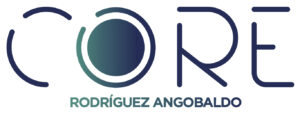Is my organization working under an eco-intelligent model?
The accelerated pace of organizations in cities requires the challenge of combining elements like management, resources and technology, which, positively promoted in an organizational environment, can be developed under an environmentally sustainable model. From this, the concept of eco-intelligence can be considered, where it seeks to develop business operations affecting the environment as little as possible. It must be recognized this is a really high expectation because it is a challenge to be committed with low environmental impact goals; however, an eco-intelligent culture starts with the commitment and this is the first step to achieve it.
Environmentally sustainable models in organizations vary from simple tasks that cover actions to use resources in an optimum way, such as the paper with its reuse and recycling, energy and water saving, segregation of waste in the source and commitment assumption of each member in the organization up to the implementation of complex and complete recognized environmental management systems such as the standard ISO 14001, that can imply the investment of human, technical and financial resources.
Environmental initiatives that conduct to an eco-intelligent model can start with:
- Commitment and management of an environmental culture: it is important all members of the organization are aware to join forces to value results in a visible way.
- Establish objectives and goals: Identify environmental variables over which periodic measure can be made in order to recognize changes, trends and compliance.
- Recognize which activities and processes have more environmental impact and design pertinent operating controls.
- Promote and motivate the use of ecofriendly vehicles, such as bicycles and electrical transportation to go to work.
The concept of eco-intelligence is complete. Therefore, it inherently relates terms like learning and adaptation. That is the reason training programs and campaigns to motivate contributors to complement their environmental behavior at home, too, are an efficient tool to achieve that target.
Thinking in the next generations enjoying the quality of the air, water and other natural resources is a motivating agent for generating and applying environmentally sustainable ideas.

